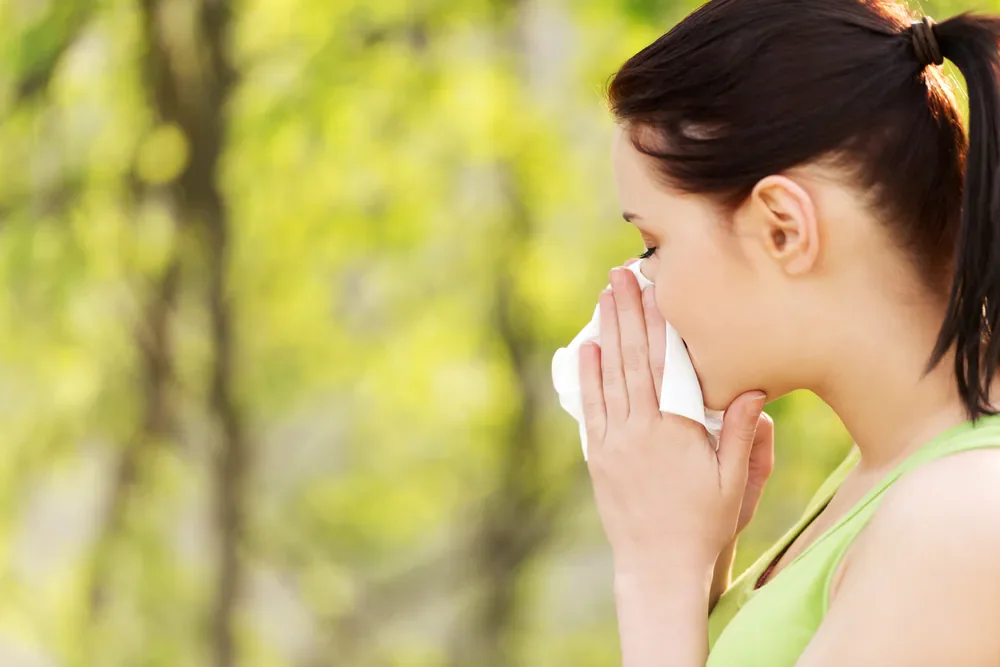Common summer allergies can be extremely uncomfortable. In this article, we’ll explore the causes, symptoms, treatments and prevention methods. These allergies are often triggered by various pollens such as grass, ragweed, tree and mold spores. Mowing the lawn may also unearth mold spores that can cause allergic reactions. Depending on your allergies, you may be more prone to allergy symptoms in the fall or late summer.
Symptoms
If you have been suffering from seasonal allergies, you may have noticed the itchy eyes, runny nose, coughing and itchy throat associated with spring and summer. If your symptoms aren’t alleviated, your symptoms may become worse and you may develop a sinus infection. If you aren’t diagnosed with the cause of your allergy, it is important to seek treatment from a doctor who can prescribe decongestants and antibiotics to resolve your symptoms. Unfortunately, your seasonal allergies may come and go causing your symptoms to recur.
Mold Spores
There are several common summer allergies. One of them is mold. Inhaling mold spores can cause allergic reactions, and symptoms tend to peak from late July to early fall. According to the Asthma and Allergy Foundation of America, there are many different types of mold, but only some are a significant cause of allergy symptoms. Indoor molds, for example, are particularly problematic because they typically grow in damp areas and create a cloud of ozone.
Weeds and Grass Pollen
Other causes of summer allergies include weeds and grass pollen. Grass and tree pollen are more common in the spring, but you can be affected by pollen from both in the spring and the summer. Then there are the insects. Some insects may sting you, but most are harmless. Dust mites are another culprit. They live in our homes and travel hundreds of miles. They may also trigger allergy symptoms.
Some of these common allergies can lead to more serious health problems, including asthma. In severe cases, you may have an allergic reaction that causes your throat and tongue to swell. If your symptoms are severe, you should seek medical attention. Mold spores are also a serious cause of allergic reactions. The dust mites that inhabit our homes thrive in damp areas. If you’re prone to these allergies, a dust mite allergy could affect your quality of life and your energy levels.
Seasonal Vegetables and Fruits
Seasonal vegetables and fruits can also cause allergic reactions. They may contain similar proteins or pollen, which trigger an allergic reaction. Some people believe they are allergic to chlorine, but this is not true. Chlorine does not cause allergies, but it can trigger uncomfortable and itchy skin and sinus symptoms. People with asthma should always take a shower after playing outdoors. If you have any of these allergies, you should seek medical attention as soon as possible.
Causes
Seasonal allergies can occur at any time of year, but they are especially common in the summer months, when temperatures are higher and allergens are more prevalent. Identifying the symptoms of common summer allergies can help you deal with the symptoms of seasonal allergies sooner rather than later. Symptoms of seasonal allergies are similar to those of the common cold, so it’s important to recognize the signs and symptoms of these allergies to avoid unnecessary discomfort.
One common culprit of summer allergies is mold. People with mold allergies react to the mold spores in the air. Mold allergies usually peak in July and early fall. There are many types of mold, but not all cause allergic reactions. Indoor molds tend to grow in moist areas, like basements and bathrooms. The Asthma and Allergy Foundation of America lists the most common types of mold, which can cause allergic reactions in many people.
Changing Weather

Changing Weather
Seasonal allergies are caused by the immune system attacking a harmless protein. While winter weather lowers outdoor allergens, wintertime can bring back allergies. Indoor allergens may include mold, pet dander, dust mites, and cockroaches. If you’re susceptible to allergies, you can prevent symptoms by washing bedding in hot water and using allergen-proof covers. You should also keep windows closed and avoid highly humid areas.
Insect Stings
Another common summer allergy is insect stings. With warm weather, insects thrive. They can sting you, resulting in a painful and sometimes life-threatening anaphylactic reaction. Most common symptoms of an insect sting allergy are a swollen tongue, redness, and itching. Serious allergic reactions can result in difficulty breathing and even shock. Always seek medical attention if you experience these symptoms.
If your symptoms don’t go away after a few days, they may be caused by seasonal allergies. These are the same as colds, but last longer. During this season, grass and ragweed are most likely to be the culprits. Both produce pollen that irritates the nasal passages and can aggravate seasonal allergies. If you have a history of allergies, see your doctor to get tested.
Treatments
If you suffer from common summer allergies, you’re not alone. Nearly 50 million Americans have to deal with these irritating conditions. Fortunately, there are a variety of treatments available to ease the symptoms. Here’s a look at three of the most common treatments. In addition, you’ll learn about the causes and possible solutions. Allergies during the summer can be particularly difficult to treat. However, there are a number of options that can help you stay as comfortable as possible this season.
ZYRTEC(R) Allergy cast Mobile App
You can find out which allergens are causing your symptoms by using the ZYRTEC(r) Allergy Cast mobile app. In addition to providing helpful tips, this app lets you know when pollen levels are highest and give you time to take the necessary steps to avoid them. You should also stay indoors when pollen counts are high. Check the weather forecast and the National Allergy Bureau to see when they’re the highest so you can avoid spending time outdoors.
Allergy Pills
If you can’t avoid exposure to allergens during peak times, consider taking an over-the-counter or prescription allergy medication. You may be able to use allergy pills in combination with eye drops or nasal sprays to relieve the symptoms. It’s important to note, however, that some medications can cause undesirable side effects when taken together, so check with your doctor before taking any new medications. You can also take over-the-counter medications or see a board-certified allergist for a professional opinion.
Counter Medications
While the most common treatment for allergies is using over-the-counter medications, if the symptoms persist, it’s best to visit an allergist for a more accurate diagnosis. If the symptoms are mild and easy to manage, you can opt for over-the-counter treatments and avoid any doctor visits for allergy shots. For more severe cases, however, it’s best to consult a doctor. In many cases, over-the-counter medications will not be effective.
Grass-pollen
Grass-pollen is the most common summer allergy trigger. These spores travel by the wind and cause sneezing, nasal congestion, and a puffy face. Often, symptoms will worsen if you go outside. Fortunately, effective treatments are available that can help manage the symptoms. And if the allergies persist, limiting exposure to the allergens you’re allergic to may be enough to help.
Prevention
If you suffer from spring allergies, summer allergy season can be even more uncomfortable. While spring and fall allergies are common, summer allergies are also prevalent. While spring pollen counts are often higher, the same allergens that trigger allergy symptoms in summer tend to be much lower. There are a few steps you can take to minimize the impact of these allergies, and you can even prevent them altogether. Let’s look at some of these common culprits, and learn how to prevent them.
Keep the house clean
Try to avoid going outdoors during peak pollen times. You should wear protective eyewear and take a shower whenever possible. You should also keep your windows closed and shower when returning indoors to reduce allergen exposure. If you have severe symptoms of summer allergies, see your healthcare provider. In addition to taking preventive measures, you should take medication before you feel symptoms. You should also avoid being in the sun during the peak pollen times.
To prevent allergic reactions, you should monitor the pollen counts before going outside. You should avoid yard work and mowing the lawn on these days, as pollen can stick to clothes. Use air conditioning to lower indoor humidity and prevent mold from growing. Moreover, use dehumidifiers to reduce indoor mold. Finally, wear face masks whenever gardening or mowing the lawn. If you can’t avoid outdoor chores, consider using a face mask or a hairnet to minimize exposure.
Dust
In addition to controlling dust mites, you should also keep in mind the allergens in your home. Household dust contains allergens like flakes of dead skin, saliva, and urine. Ask family and friends not to vacuum or dust on the day that you’ll be visiting them. In addition to that, keep your allergy medicines with you. By following these tips, you’ll be able to minimize the effects of allergy triggers and improve your quality of life.
Preventing pollen from trees and other plant sources is a key step in preventing summer allergies. Grass is the first allergen to bloom in spring and is responsible for most of the allergens in the air. In the summer, grasses and molds are another common allergen. Grass pollen is often more prevalent during the warmer months of the year, while mold spores thrive in humid environments. In addition, mugwort contains proteins that can trigger an allergic reaction.
Get More Information:
Apartments for Rent in Oakland CA
Sell Your House for Money in Los Angeles
5 tips Real Estate Marketing for 2022
car accident lawyer chicago langdonemison.com
Employee Recognition Ideas Your Staff Will Love
5 Compelling Benefits of Baseball for Kids







